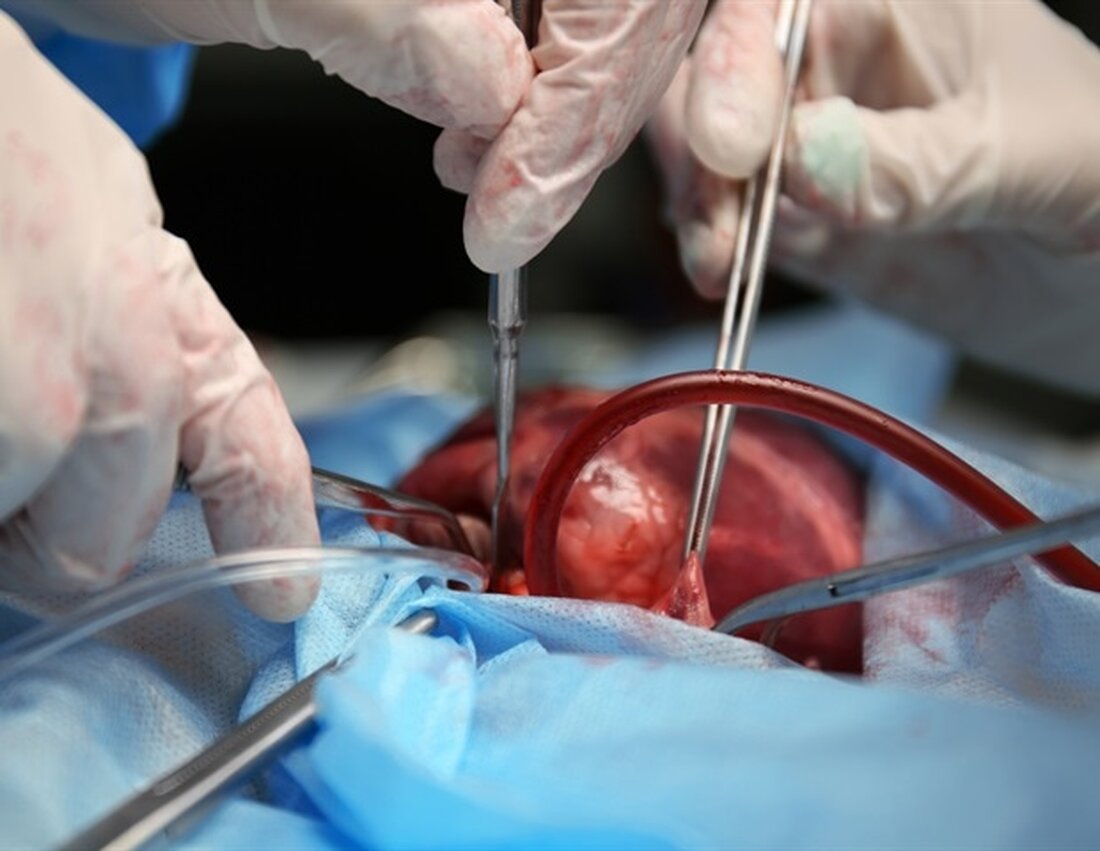The molecular signature could be mechanistically related to the risk of bleeding after cardiac surgery
Postoperative bleeding is one of the most common complications after cardiac surgery, especially open heart surgery. This type of surgery requires surgeons to use cardiopulmonary bypass, an extracorporeal circuit of tubes and machines that mimics the function of the heart and lungs. This allows them to work inside the heart while it remains silent and bloodless. Despite its undeniable benefits, blood circulation outside the body affects the number and function of the components responsible for blood clotting, platelets. Therefore, to prevent or correct bleeding, patients often require blood transfusions, which not only increases their risk of death but also causes significant healthcare costs with...

The molecular signature could be mechanistically related to the risk of bleeding after cardiac surgery
Postoperative bleeding is one of the most common complications after cardiac surgery, especially open heart surgery. This type of surgery requires surgeons to use cardiopulmonary bypass, an extracorporeal circuit of tubes and machines that mimics the function of the heart and lungs. This allows them to work inside the heart while it remains silent and bloodless. Despite its undeniable benefits, blood circulation outside the body affects the number and function of the components responsible for blood clotting, platelets. Therefore, to prevent or correct bleeding, patients often require blood transfusions, which not only increases their risk of death but also entails significant healthcare costs.
To find molecular signatures that could influence prognosis, researchers at the Instituto Gulbenkian de Ciência (IGC) examined blood samples from 33 patients who underwent heart valve replacement surgery at the Department of Cardiothoracic Surgery at the Hospital de Santa Maria in Lisbon. Samples were collected before and 6 and 24 hours after surgery and compared between patients with and without rebleeding.
Changes in the levels of omega-6 family fats in the blood of these patients caught the attention of researchers. Curiously, patients with low blood lipid levels lost more blood before surgery and required almost twice as many postoperative transfusions. Although these fats were known to regulate the aggregation of platelets to form blood clots, they were never linked to bleeding risk.
We were very excited to find this signature that could be mechanistically related to and potentially reduce the risk of bleeding after cardiac surgery.”
Tiago Velho, co-first author of the study, cardiothoracic specialist at the Hospital de Santa Maria and doctoral student at the IGC
Postoperative bleeding was also higher in patients whose omega-6 levels decreased between the preoperative and postoperative time points. But what causes this change? The authors explain that this is another example of the complex interaction between surgical inflammation and coagulation. An important inflammatory mediator known to increase the number of platelets and stimulate their function appears to be related to the variability of patients' blood lipids. In particular, this pro-inflammatory mediator appears to decrease in patients with significant bleeding. Therefore, inflammation could be the reason for the changes in this fat and therefore the dysfunction of platelets after heart surgery.
In summary, this study shows that changes in the content of fats from the omega-6 family, which are associated with inflammation, are characteristic of cardiac surgery with cardiopulmonary bypass. We look at the number of platelets,” explains Luís Moita, senior researcher of the “Innate Immunity and Inflammation” group at the IGC and also a trained doctor. Supplementing with this fat before surgery could be a safe and cost-effective option to ensure the normal functioning of these blood components. The researchers are already planning a study “to evaluate the effectiveness of this strategy in reducing bleeding and transfusions after surgery.”
Source:
Instituto Gulbenkian de Ciência (IGC)
Reference:
Velho, TR, et al. (2022) Role of omega-6 fatty acid metabolism in cardiac surgery. Postoperative bleeding risk. Explorations in Critical Care. doi.org/10.1097/CCE.0000000000000763.
.

 Suche
Suche
 Mein Konto
Mein Konto
